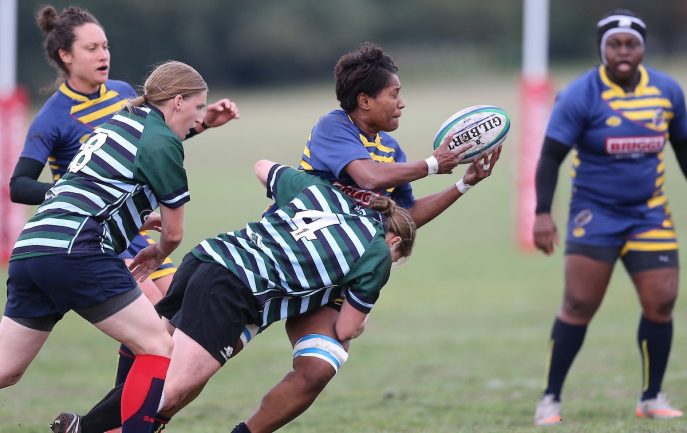The British Army has long had a significant gender split between serving males and females. Although numbers have increased over the last few years, the UK Government’s last biannual diversity report, published in April 2020, showed that a shade under 10 percent of the total number of full-time soldiers and 14 percent of Army Reserves were women.
The Army Rugby Union (ARU) structure has largely followed that of the Army as a whole, with teams representing Units, Corps and the Army itself. However, given the gender split detailed above, and despite having Army personnel at half-a-dozen Premier 15s clubs, Gemma Rowland and Bethan Dainton both playing for Wales in the Six Nations and Dainton joined by Jade Mullen in the recent Lisbon leg of the Rugby Europe Sevens Championship Series, the development structure had not been as productive is it could have been.
So the ARU Community team has spent the lockdown making a significant change in thinking with regard to the women’s game. Currently, the Women’s game is unable to sustain Unit rugby, due to low numbers. Traditionally, this would be the proving ground in order to feed players to representative level, namely Corps and Rugby. In order to refine the balance and to give potential players the opportunity to learn a new sport and to play for fun, Garrison teams are being formed to give every woman living and working in that Garrison the opportunity to train and play, regardless of their actual Unit or job.
“What we’re trying to do with ladies Garrison rugby, which we have coined ‘Super Series’, is to give equality of sporting opportunity,” says ARU Community Rugby Director, Marc Wilding. “While we can play Unit rugby with men, we can’t do that with women because we don’t have those numbers in a single Unit. So to bring an ARU umbrella over Garrison rugby gives us an opportunity and a chance for people new to the sport to see if they like it or a path back to the game for those that may have stopped playing previously.
“I’m keen to stress to ladies who want to take up the game that the pathway to representative rugby is achievable and while it would be fantastic to see someone introduced to rugby via the Super Series run out in the red shirt of the Army, that is not our only metric for success. Improving the quality of life for our soldiers, promoting team spirit and providing positive female role models is perhaps more important to me.”
The ARU is already putting this work into practice, with a promotional campaign underway, and Wilding is looking forward to women’s rugby developing quickly, adding: “There’s an element of excitement from certain areas and everyone’s looking forward to getting their boots on again.
“I would love to think that as we establish Super Series sides, some competitive fixtures will follow against both military and local teams. That competition could be 15s, 10s or Sevens, whatever suits each team’s individual needs, we are just keen to grow participation numbers and to provide further sporting opportunities to our soldiers.”
Article by Chris Wearmouth, New Dogs Old Tricks









